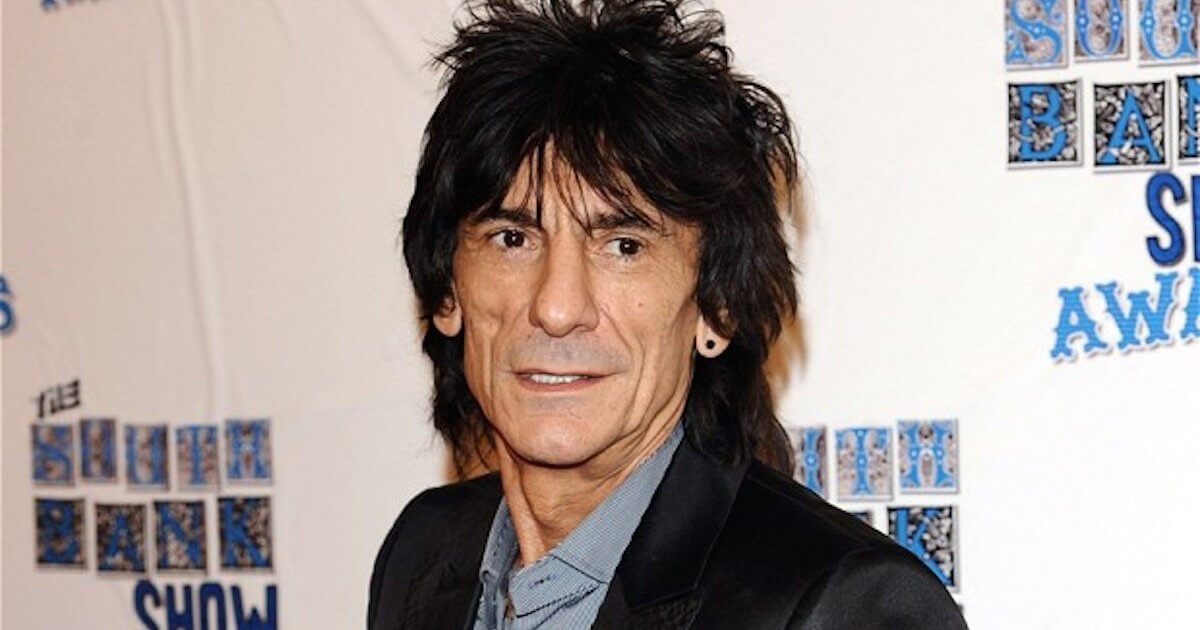“It’s very surreal to be 70 because I didn’t expect time to go so quickly,” says legendary Rolling Stones guitarist Ronnie Wood while discussing his upcoming documentary Somebody Up There Likes Me and battle with lung cancer.
Wood, 72, has been a heavy smoker for most of his life. According to the guitarist, he had given up smoking cigarettes just two years ago after 54 years of living with the habit. His decision to quit stems from his brush with lung cancer in 2017, where he went through three months of treatment and was declared “cancer-free.” While speaking to The Daily Mail, Wood acknowledged that he’s extremely lucky that the lung cancer wasn’t worse, considering his decades of heavy smoking.
Read MoreUK friends! My first feature length documentary, Somebody Up There Likes Me, by Mike Figgis is hitting your TV screens on Saturday 6th June at 9pm on Sky Arts.
Set a reminder in your planner and click here for the full sneak preview: https://t.co/mSMhyrfqfx pic.twitter.com/XRm4m1IMao
— Ronnie Wood (@ronniewood) May 20, 2020
Lung Cancer In Smokers
During a lung cancer diagnosis, the question “Do you smoke?” will often come up while speaking to oncologists. While some patients may feel uncomfortable by the question, an honest answer can be critical in determining the best treatment for the disease.
Related: Quitting Smoking Can Help the Success of Your Lung Cancer Surgery
Smoking is the primary cause of lung cancer, but non-smokers can develop this disease. Researchers are beginning to understand the differences between lung cancer in smokers versus non-smokers, says Dr. Ronald Natale, a medical oncologist at Cedars-Sinai Medical Center.
“Among patients who are smokers, who have more complex cancers that have hundreds, sometimes thousands of mutations, don’t have a driver mutation that we can give a pill for, which is only a tiny percentage of lifelong smokers,” Dr. Natale tells SurvivorNet. “Chemotherapy is the primary treatment in the majority of those patients.”
Doctors tell SurvivorNet that it’s extremely important for people to try to quit smoking for their health and to prevent a lung cancer diagnosis. The tobacco in cigarettes is a carcinogen that causes mutations in lung cells and enables the growth of cancer, and 80% of lung cancer deaths are caused by smoking.
Related: FDA Orders The Most Significant Change To Cigarette Labels in 35 Years
“If you’re smoking, stop,” says Dr. Joseph Friedberg, the head of the Division of Thoracic Surgery at the University of Maryland School of Medicine. “That decreases your chance of getting a lung cancer. We don’t need the diagram for this. Basically, smoking causes mutations and so forth, and it’s a carcinogen, a substance that causes cancer. Just like asbestos or you know, certain metals and so forth.”
However, quitting smoking can be an extremely difficult process for many people. Dr. Brendon Stiles, a thoracic surgeon at Weill Cornell Medical Center, tells SurvivorNet that even though he knows first hand the damage smoking can cause a person’s lungs, he tries to not shame patients for their history of smoking.
Dr. Brendon Stiles on why he doesn’t shame smokers who have developed lung cancer
“I certainly don't give my patients a hard time if they're vaping; I actually don't give them a hard time if they're still smoking," Dr. Stiles said. "It's very, very hard to quit, and they've got so many things going through their mind and so much anxiety at the time of their surgery that I don't have a policy, 'hey, gotta stop smoking.' I think surgery is a great learning opportunity, it's a great time for them to be in the hospital where hopefully they'll stop after that. But, it's tough to really beat people up about that in my opinion."
Learn more about SurvivorNet's rigorous medical review process.


